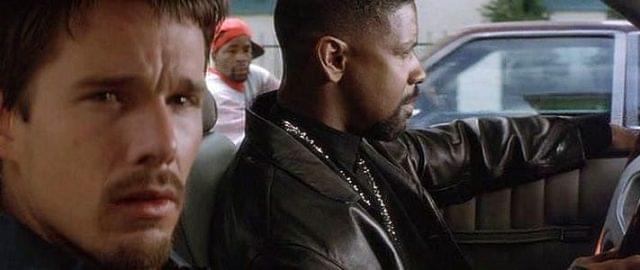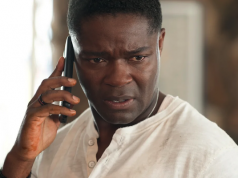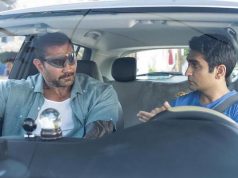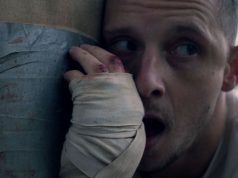
“Training Day” reminds me of the films of the 1970s that were gritty and violent but that also showcased stellar acting, back before blood and intelligence became mutually exclusive in movies.
Denzel Washington, riveting as always, plays Detective Sergeant Alonzo Harris, a loose-cannon cop dedicated to eradicating drugs and drug dealers from the mean streets of L.A.
On the day in question, he is giving rookie cop Jake Hoyt (Ethan Hawke) a chance to prove himself worthy to be a part of his elite squad of undercover narcotics officers. Jake is alarmed at Alonzo’s unorthodoxy, which includes making him smoke pot so he’ll know what it feels like, drinking on the job, and letting bad guys go if they’re not “important” enough to spend time on.
His attitude toward Jake is summed up in this exchange:
ALONZO: You think I’m crazy, don’t you?
JAKE: I don’t know what to think.
ALONZO: Good.
Alonzo is a fascinating character, made positively electric by Washington. Though for much of the film we’re not sure where we’re headed, it is fun to watch a fascinating actor like Denzel Washington do his thing. Alonzo rants, howls, fights and lectures, and whips back and forth between jovial and fearsome. He is unpredictable and frightening — two of the best things a movie character can be.
Director Antoine Fuqua (“The Replacement Killers,” “Bait”) knows the film rides on the shoulders of Washington, and he’s comfortable with that. The first hour, speaking in terms of plot, does nothing more than follow Alonzo and Jake around as they patrol Los Angeles. The pace is leisurely, but still compelling: Who wouldn’t enjoy cruising L.A. with a crazy cop like Alonzo Harris?
Ethan Hawke, for his part, does better than usual, and actually musters a facial expression here and there. Jake is terrified of Alonzo — until he finally stands up to him, which is a breathtaking scene — and Hawke does well as a sort of ordinary man thrust into an unsettling situation.
The violence is minimal until the finale, which more than makes up for the lack of bullets seen in the first 100 minutes. Whether the violence is necessary or gratuitous depends on your point of view. To me, violence is unjustified only when it doesn’t fit the context (a shoot-out in a light-hearted family comedy, for example), or when the film hasn’t already earned my respect, causing the blood to turn me off even more.
The idea that Fuqua employed violence just for attention never crossed my mind, as the film was compelling enough already. Surely he knew he didn’t need it as a gimmick. He included it because it works, and because it is fitting for larger-than-life characters to encounter larger-than-life circumstances.
A- (; )





